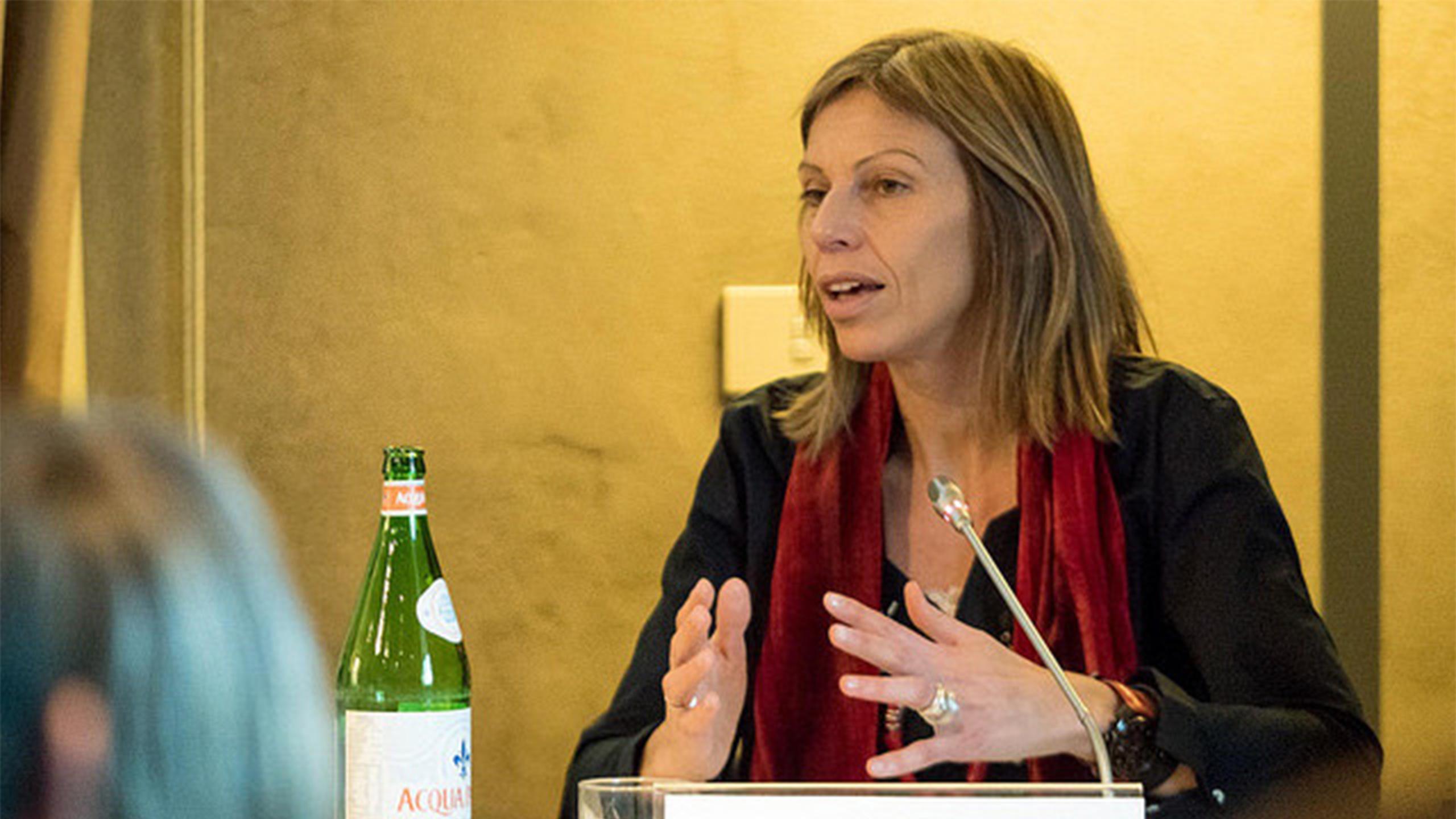By Margaux Perrin
Have you ever seen the whole world in one place? If not, you’ve never walked through the busy streets of downtown Toronto and taken in the diverse population it attract—a subject of great appeal to immigration researchers such as professor Anna Triandafyllidou, Ryerson’s first Canada Excellence Research Chair (CERC) in Migration and Integration.
Back in March 2019, the Government of Canada was set to provide Ryerson $10 million over the course of seven years to build usable research on immigration and settlement.
While growing up in Greece, Triandafyllidou first became aware of the impacts of immigration following the collapse of the Berlin Wall in 1989. The wall’s collapse caused a mass immigration movement from Eastern European countries, such as Poland and Hungary, to Western countries, including Greece.
Over the next few months, she watched as the majority of Greece’s population became immigrants from the failed Eastern Bloc. “I started by studying the impact of migration on national identity because I saw a very dramatic change in public attitudes in Greece and southern Europe from xenophobia to an enthusiasm about foreigners,” said Triandafyllidou.
After earning her PhD at the European University Institute in Italy, she went on to teach around Europe at several institutions, including the London School of Economics and the Consiglio Nazionale delle Ricerche in Rome. Her expertise is in the governance of cultural diversity, migration and nationalism from both a European and international perspective, studying the impact of immigration on a given country’s culture.
Triandafyllidou has been living in Toronto and teaching at Ryerson for over a year. When talking with Canadian colleagues about her European perspectives on immigration, she said she can feel like “an insider-outsider.”
Canada applies a very different philosophy to immigration compared to many countries in Europe, Triandafyllidou said. As a “settler-colonial” state, Canada maintains the repression of its Indigenous peoples and culture by encouraging continuous settler occupation and immigration, according to Oxford Bibliographies.
As such, immigration has always been a part of Canada’s national identity. “This whole discussion about Canada being a settler-colonial state…is unfortunately still absent in discussion about immigration and migration management between scholars and politicians,” said Triandafyllidou.
As a “settler-colonial” state, Canada maintains the repression of its Indigenous peoples and culture by encouraging continuous settler occupation and immigration
Since arriving at Ryerson in April 2019, Triandafyllidou has conducted various research projects. One of them is a start-up project called I am… which is a tribute to ongoing advocacy for Black and Indigenous lives.
“Through it, we really want to explore this dynamic process of identity making,” she said. The plan is to have graduate students learn to record, edit and present three-minute videos “exploring their sense of identity and belonging or not belonging,” according to the I am… project website.
Her team is interested in exploring the concept of national identity amongst first, second and third-generation immigrants. They also want to examine the emotional relationship between Indigenous people and the Canadian state. She and her team will be hosting an event for the project’s launch next semester.
Over the next seven years, Triandafyllidou and her team’s research will focus on under-researched topics such as Canada’s political narrative towards migration, Canadian multiculturalism from different provincial perspectives, the links between migration and integration with the wider processes of change in the 21st century and more, according to Ryerson’s CERC website.
Although Triandafyllidou’s team has been negatively impacted by the pandemic, she said it is nothing compared to the impact the pandemic has had on migration. Many immigrants now fear that if they move to Canada, they will be unable to find jobs in their field. There is “almost a complete reverse of the priorities” for countries taking in workers, said Triandafyllidou. “Workers in farms, agriculture in Canada and across Europe for sure became essential workers,” since the start of the pandemic.
As a result of COVID-19, Triandafyllidou and her team started “Pandemic Borders,” an online platform about the impact of the pandemic on immigration. She said they’re adding a new “twist” to this project called “Migration’s Future” to answer the question of how the pandemic is changing the future of migration.
One of the greatest question is how the pandemic’s economic turmoil will affect migration. “For instance, we know that some people are worried that if they come to Canada, there won’t be jobs anymore like they thought there would be.”
Although the pandemic will impact migration in many different ways, Triandafyllidou believes that Canada will still remain one of the top immigration countries in the world. “Migrating to a new country is not just about work, it’s about the whole life experience, your own future and the future of your children,” she said.










Leave a Reply